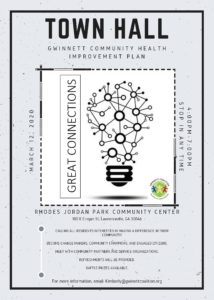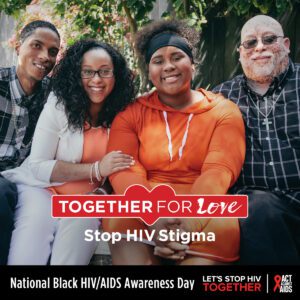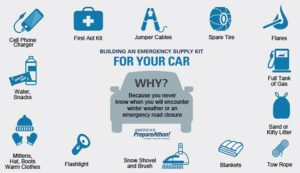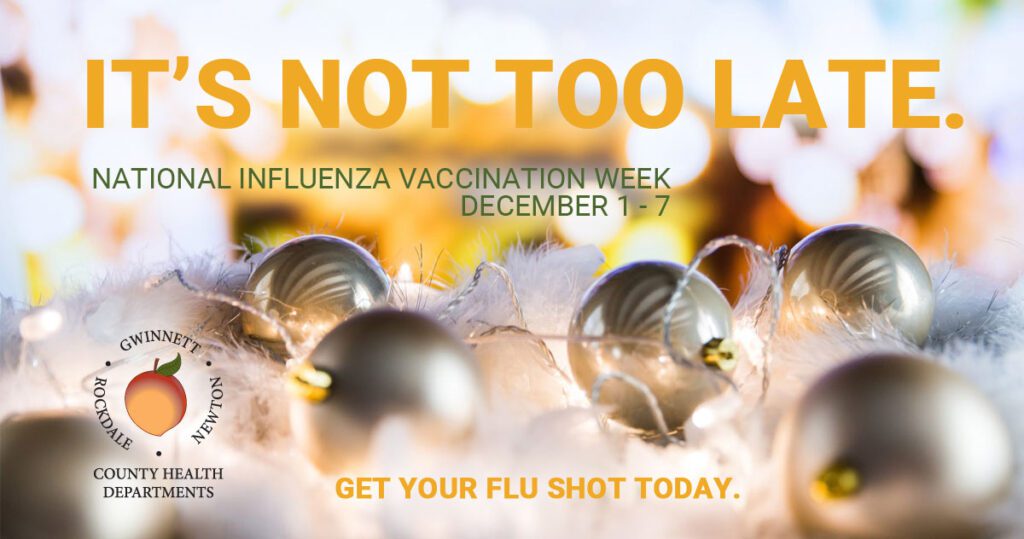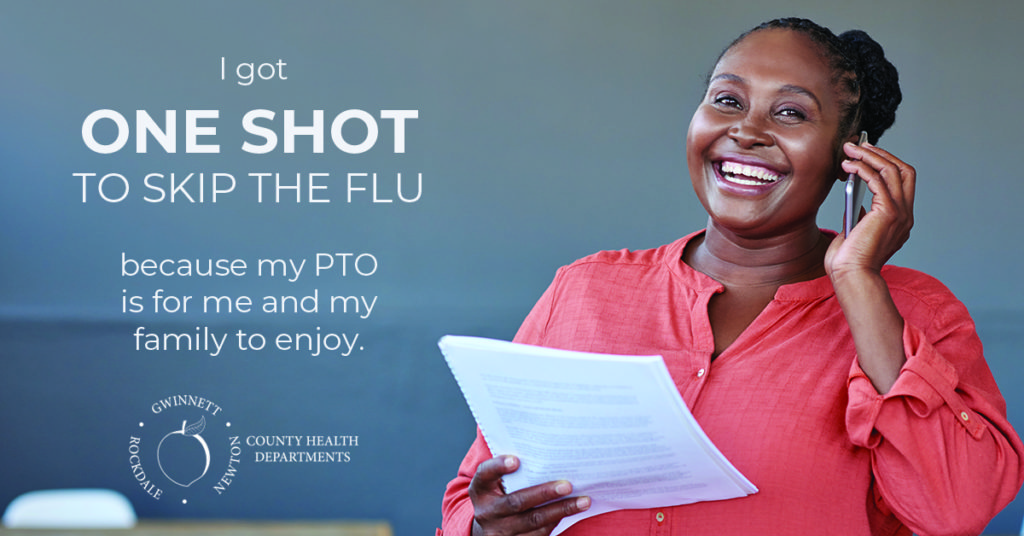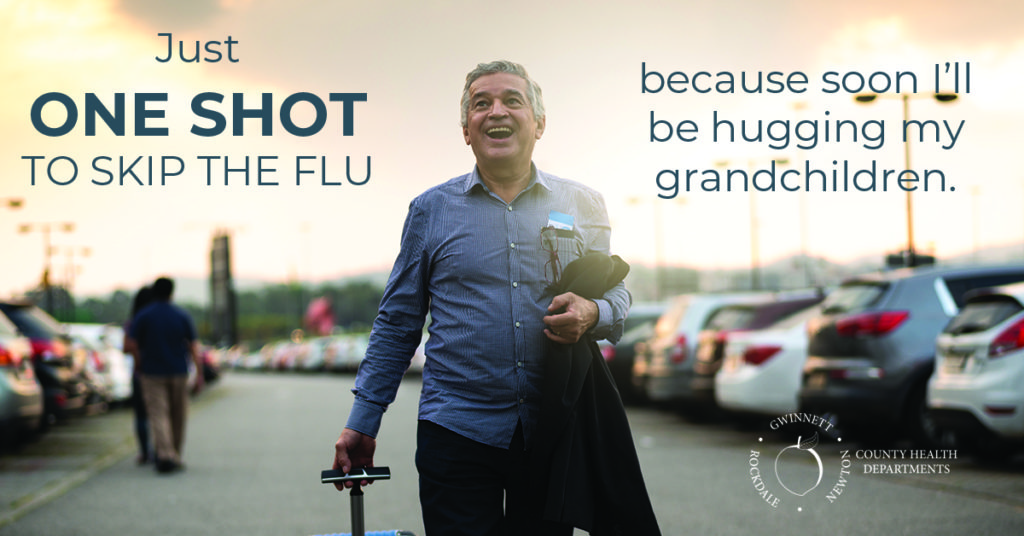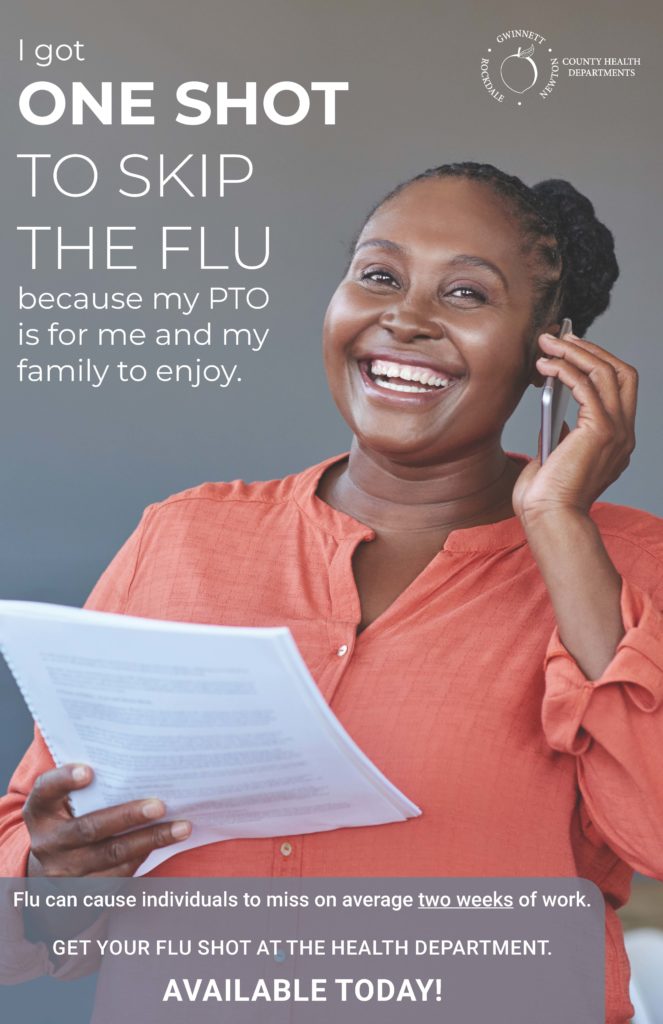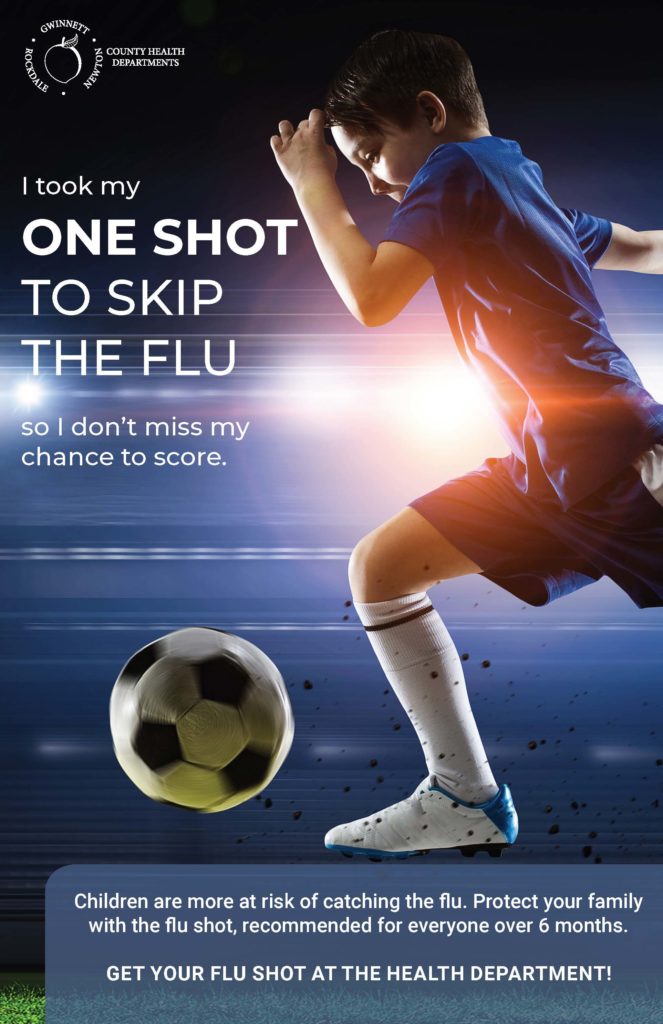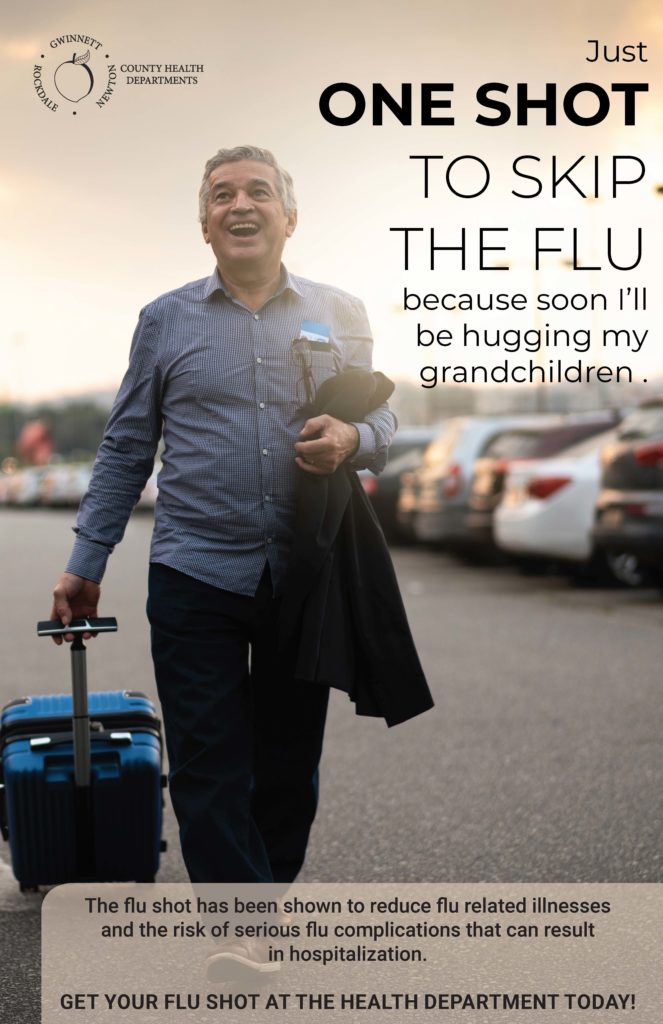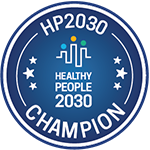Get your flu shot today at your closest location!
Flu season has started, and Gwinnett, Newton and Rockdale County Health Departments is ready to vaccinate residents and businesses. We are kicking off our campaign to fight flu this year: “One Shot to Skip the Flu.” CDC and the Health Department recommend everyone age six months and older get an annual flu vaccine as early in the season as possible. The Health Department is targeting each age group to promote widespread vaccination.
“The flu shot is the most simple and effective way to protect you and your family from catching the flu,” said Dr. Audrey Arona, district health director and CEO of Gwinnett, Newton and Rockdale County Health Departments. “Just one shot can lower the risk of illness so that your children can stay active, so that parents can save their paid time off, and so that our seniors can avoid complications.”
Influenza, the virus that causes the flu, sickens thousands of residents and workers in Gwinnett County each year, leading to missed days at school and work. In severe cases, flu can also result in hospitalization. Each year, the flu shot gets an update to protect against new strains of influenza, which is why it is essential to get the vaccine annually. It can take up to two weeks for an individual to receive full immune protection from the vaccine, so it’s best to get the shot early before flu activity increases. The flu vaccine also helps protect those who are at risk of complications if they catch the flu. It has also been shown to limit the severity of flu for those who get vaccinated but still get sick.
“Flu can cause a tremendous increase in work or school absence that can span up to a couple of weeks,” Dr. Arona said. “Between promoting flu vaccination and reminding sick employees and students to stay home, we can limit the spread of flu this season and keep our families safe and healthy.”
Each Health Department location in Gwinnett, Newton and Rockdale Counties is fully stocked with flu vaccine, including the quadrivalent for broader coverage of flu strains and the high-dose for those 65 and older. Most insurances cover the vaccine.
The Health Department is also working with local businesses and schools to provide onsite flu clinics for their employees. Health Department staff set up at the company to conveniently administer immunizations.
More Information
What Types of Flu Shots Are Available?
The regular flu shot is an option for people 6 months and older. High-dose vaccines are specifically designed for people 65 years and older. Our immune systems become weaker with age, which places us at greater risk of severe illness from influenza. The high-dose vaccine has a higher amount of antigen than what is contained in regular flu shots.
How Much Does It Cost – and What Insurance do You Accept?
- The seasonal flu vaccine for adults is $30
- The seasonal flu vaccine for children (VFC) is $21
- High Dose flu vaccine is $65
For payment the Health Department accepts cash, debit cards, credit cards, Medicare, Medicaid, and several private insurance plans.
How can I set up an onsite flu clinic for my business?
If you would like to schedule a vaccine clinic for your employees, send us an email for more information, availability and pricing.
One Shot to Skip the Flu
Click below to view our posters. Feel free to download and share at your business, church, or community center.


